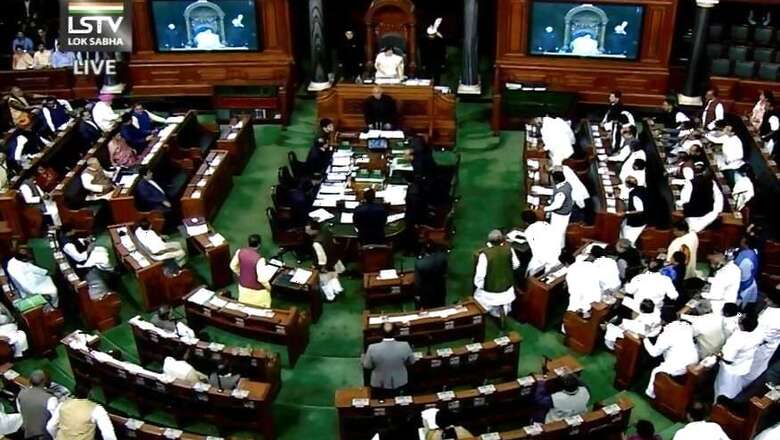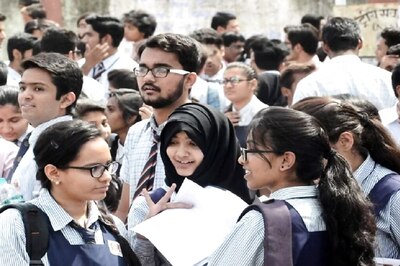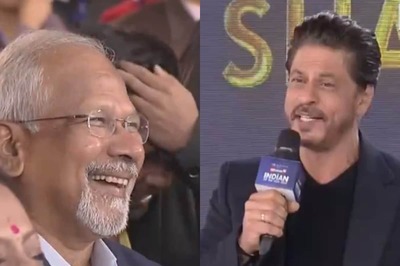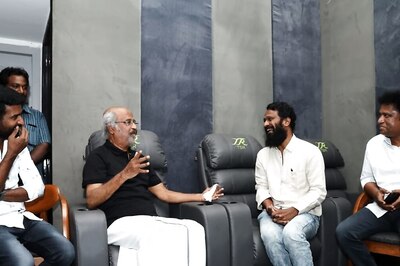
views
New Delhi: The Winter Session of Parliament which begins on Tuesday will not only be heavy on legislative business but also test if the government buckles under the pressure of Right-wing groups for a legislation on Ram Temple. It will also be a test of its floor skills in the Rajya Sabha when a bill to replace the triple talaq ordinance is introduced.
The last full-fledged parliament session before the 2019 Lok Sabha elections, the proceedings are likely to be stormy with repeated disruptions expected from the opposition to corner the government on contentious issues like Ram Temple, Rafale deal, alleged attempts at polarisation and the alleged manipulation of voter lists and EVMs in recently held Assembly elections.
The session will also be a test of opposition unity and numbers in both houses since Parliament reconvenes a day after the grand meeting of regional satraps for a possible anti-BJP front.
Currently, there are 66 bills pending in Parliament. Of these, 23 are listed for consideration and passage, and two for withdrawal. As many as 20 new bills are listed for introduction, consideration and passage.
The spotlight will also be on how the government manages to get the triple talaq bill passed in Parliament. The Muslim Women (Protection of Rights on Marriage) Bill, 2018 has to replace the Ordinance that was brought in when Parliament was not in session.
The bill makes all declaration of instant triple talaq illegal. It is punishable with imprisonment of up to three years. Since re-promulgation of the ordinance would turn up the heat on it in Supreme Court, which had termed such a move as “fraud on the constitution", the government will go all out to get the bill passed in Rajya Sabha where it is short of the numbers.
Expecting a politically charged session, Lok Sabha Speaker Sumitra Mahajan has called a meeting of all parties on Tuesday morning December 11, while Rajya Sabha chairman Venkaiah Naidu has called a similar meeting of Upper House leaders on Monday.
Here’s a detailed look at the key bills scheduled to come up in the Winter Session:
The Right of Children to Free and Compulsory Education (Second Amendment) Bill, 2017
The bill empowers the government to detain a child in Classes 5 and 8, or both, and provides an opportunity to the student to take re-examination before detention. The bill was introduced in the Lok Sabha in 2017 and a Standing Committee report was given on February 9 this year. The bill was thereafter passed by the Lok Sabha on July 18 and now awaits the nod of the Rajya Sabha.
The Trafficking of Persons (Prevention, Protection and Rehabilitation) Bill, 2018
The bill ushers in a law for investigation of all types of trafficking, and rescue, protection and rehabilitation of the victims. It was passed by the Lok Sabha in the Monsoon Session and now awaits passage in the Rajya Sabha.
The Transgender Persons (Protection of Rights) Bill, 2016
This bill defines a transgender person, prohibits discrimination against them and prescribes penalties for certain offences. Although introduced in the lower house in 2016, the Standing Committee report was given on July last year.
The National Medical Commission Bill, 201
This bill repeals the Indian Medical Council Act, 1956 and sets up the National Medical Commission to regulate medical education and practice. The Standing Committee report is in place and now awaits the Raj Sabha nod
The Unlawful Activities (Prevention) Amendment Bill, 2018
Heeding to continuous demands, this bill amends the existing act with respect to investigation and prosecution of offences relating to terrorism.
NRI Voting Bill
The Centre on December 8 informed the Supreme Court that a bill to amend electoral law to allow NRIs to vote through postal or e-ballots has been passed by the Lok Sabha and is likely to come up in the Rajya Sabha in the Winter Session.
The petitions have said that 114 countries, including 20 Asian nations, have adopted external voting, which could be held by setting up polling booths at diplomatic missions or through postal, proxy or electronic voting.




















Comments
0 comment